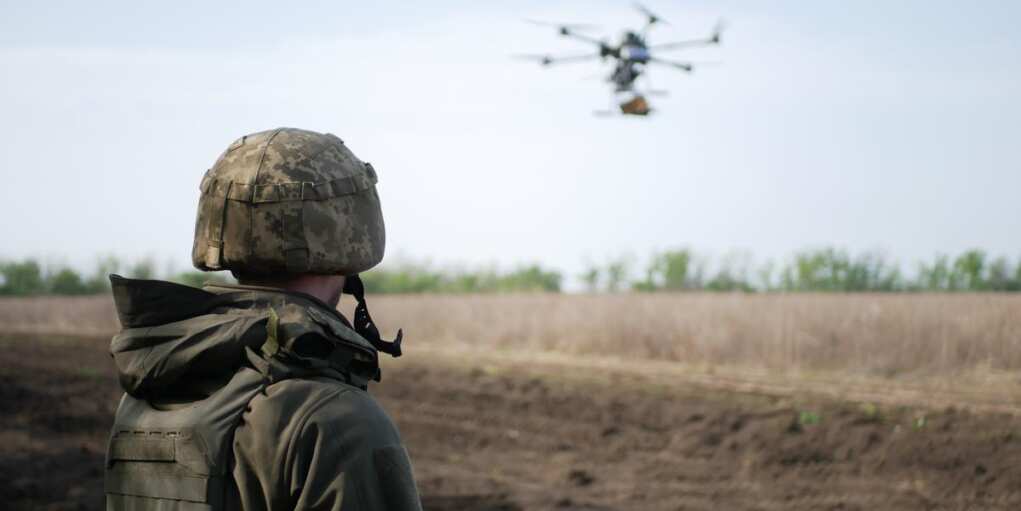Putin Drafts A New Army—Just as Peace Negotiations Fail
miss.cabulAs peace negotiations with Ukraine stall out, Russian President Vladimir Putin is doubling down. On Tuesday, he ordered the largest military draft Russia has seen in over a decade — 160,000 men between the ages of 18 and 30 are now set to be conscripted between April and July. The timing is no coincidence. The […]
Trump Threatens Putin with Oil Tariffs—Demands Peace Deal Now
Rawpixel.comPresident Trump is sending a loud, unmistakable message to Vladimir Putin: cut a peace deal in Ukraine or face devastating economic consequences. Speaking from the Oval Office Monday night, Trump warned that if Russia doesn’t stop dragging its feet in peace negotiations, his administration is ready to slap “secondary tariffs” on all Russian oil exports. […]
Biden Admin Exposed—They Were Secretly Pulling Strings In Ukraine
seeasignA bombshell report from the New York Times has pulled back the curtain on just how deeply entangled the Biden administration was in the Ukraine war—despite years of public denials and claims of “limited involvement.” According to the report, the United States didn’t just send aid packages and cheer from the sidelines. American officials were […]
Trump Warns Iran: Talk Peace or Face Firepower
saeediexIran has once again rejected direct talks with the United States, and President Trump is not playing games. In a no-nonsense interview with NBC News on Sunday, Trump warned that if the regime doesn’t come to the table, they could face devastating consequences. “If they don’t make a deal, there will be bombing,” Trump said. […]
Trump’s IRS-ICE Plan Could Catch Millions of Illegals
MyLove4ArtA pending agreement between the IRS and Immigration and Customs Enforcement (ICE) could reshape federal enforcement — and put illegal immigrants in the crosshairs of deportation like never before. The deal, which would allow ICE to access current address data by cross-referencing names with IRS tax records, has sparked concern among tax experts and longtime […]
Pelosi Snaps at Reporter, Sparks Buzz About Her Political Future
Dominic DudleyNancy Pelosi has spent decades in Congress doing what she does best: manipulating power, icing out her opponents, and playing queenmaker inside the Democratic machine. But now, the grand dame of San Francisco politics is showing cracks in the armor. And it’s not a great look. At 84 years old and in her 20th term […]
Mass Deportations Now Have Shock Support
Krakenimages.comThe silent majority isn’t so silent anymore. A new Pew Research Center poll just confirmed what most of America has known for years—but the media, the left, and the open-borders crowd have tried desperately to ignore: President Trump’s mass deportation agenda has the backing of a strong majority of Americans. Not just conservatives. Not just […]
Trump Pulls the Plug on Billions in COVID Slush—And the Left Is Screaming
Viacheslav LopatinPresident Trump’s administration is doing the unthinkable in Washington—turning off the faucet. Billions in leftover COVID-era funds, tucked away in dusty accounts and hidden under vague “public health” labels, are being revoked and repurposed. And naturally, the usual suspects are losing their minds. After years of unchecked spending and bureaucratic expansion, someone finally had the […]
Tesla Wrongly Accused Of Financial Lie – Now It’s Payback Time
Chris AllanA storm kicked up last week when a Financial Times piece suggested Tesla’s books were hiding a massive $1.4 billion gap, sending ripples through media eager to pounce on the electric car giant’s woes. President Donald Trump’s administration, closely tied to Tesla’s Elon Musk, watched as the company’s stock took a hit—only for the narrative […]
Trump’s Intervention Secured Astronauts’ Return, NASA Says
SNEHIT PHOTONASA has thrust President Donald Trump into the spotlight, attributing the successful return of astronauts Barry “Butch” Wilmore and Suni Williams to his direct intervention after a nine-month ordeal on the International Space Station. NASA spokeswoman Bethany Stevens, in an exclusive interview with Fox News Digital, declared, “This is a huge win for the Trump […]
Nearly Half of California Voters Eye GOP Governor in 2026
vivoooA fresh poll of California’s likely voters has turned heads, showing a remarkable openness to breaking the Democratic monopoly that’s ruled Sacramento for years. Conducted from March 6-9 by national pollster David Wolfson, the survey found that “48 percent said they would ‘consider’ voting for a Republican for governor,” according to 790 KABC radio. Republicans […]
JFK Files Reveal CIA Pretending To Be State Diplomats
GorodenkoffNewly declassified records from the JFK assassination files, unveiled on March 18, 2025, by the National Archives, reveal a stunning reality: the CIA had embedded so many agents under State Department cover that they outnumbered genuine diplomats in key U.S. embassies. According to one document, “On President Kennedy’s Inauguration Day, 47 percent of the political […]
Leftists Up Their Hate Game With a Vile Site Targeting Tesla Owners
VTT StudioThe left’s meltdown over President Donald Trump’s reelection took a sinister turn Tuesday, and conservatives like me are appalled because they’ve launched a website—TeslaIsTrash.com—aimed at doxxing and intimidating Tesla owners across America. This isn’t just some petty gripe—it’s a full-on attack on regular folks who dared buy an electric car from Elon Musk, and Republicans […]
Trump Tells Iran They’re on the Hook for Houthi Thugs
Sherif Ashraf 22President Donald Trump fired off a warning shot that’s got conservatives like me pumped up, and it’s all because he’s finally holding Iran’s feet to the fire for every dirty trick their Houthi lackeys pull in Yemen. He took to Truth Social—where real talk lives—and told Iran’s leaders straight up they’re accountable for any future […]
Cops Boot Migrants Out of Theater After Chaos Erupts
Victor VelterFrench authorities got fed up Tuesday morning and sent their anti-riot CRS cops storming into a Paris theater that’s been a migrant crash pad for months. Conservatives all over are shaking their heads because this whole fiasco started when the Théâtre de la Gaîté Lyrique threw open its doors for a free refugee conference back […]















